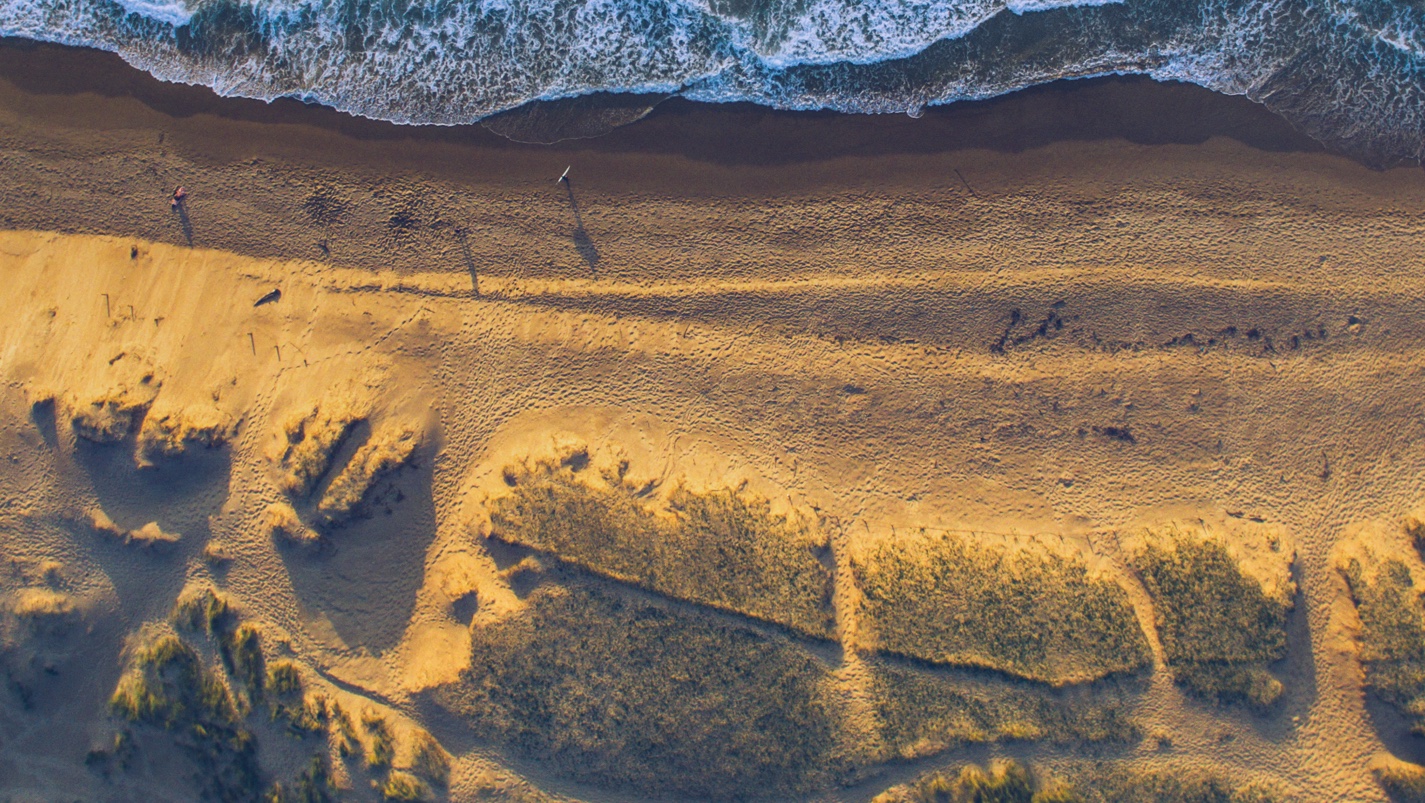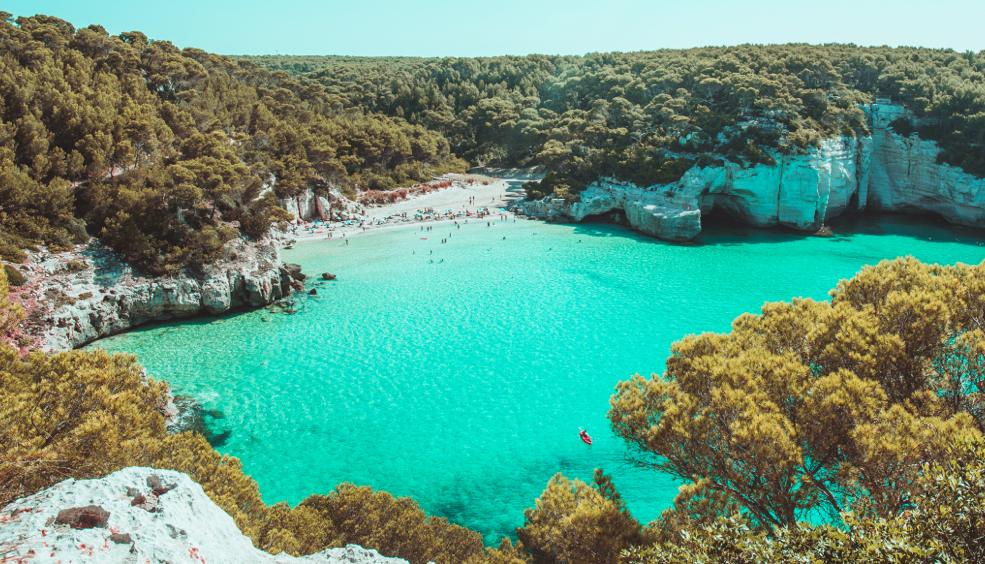If you like pintxos… don't think twice and come to Bilbao!
Here are some of the best places to enjoy small bites of Basque cuisine. Enjoy creamy roast txangurro, mini pil-pil cod or a more international dish like a pastrami, sardine and chipotle sandwich. You won't be able to resist!
more info6 perfect destinations for September
Round off your summer with a getaway! Travelling in September is cheaper, and cities are less crowded. What could be better than a trip to recharge your batteries before getting back into the routine?
more infoEight Very Basque Sports
You will often hear me say that I feel Basque by adoption and, if there is something I especially like about the Basque Country, it is their passion for sport in general. There are some I am not very good at, and are only suitable for locals, such as harrijasotzea (stone lifting), lasto altxaketa (bundle lifting), aizkolaritza (tree-felling), esku pilota (open-hand pelota) and even football, which is really big here. There are three local teams in the first division – Athletic de Bilbao, Real Sociedad and Eibar.
However, there are other sports which, as far as I’m concerned, are also well-entrenched in Euskadi. I have chosen the eight I would like to take part in (as a sportsman or spectator) in the next few months. I would also encourage you to try them out, or at least to come and watch them.
1. Cycling – The most widely commented sport may be football, but, in the Baque Country, the one engaged in by most is cycling. Professionally, there is the Vuelta al País Vasco (where you can delight in the famous muro de Aia, in Zarauz, including some ramps with a gradient of 28%), and the Clásica de San Sebastián. For the amateurs, there is the Bilbao-Bilbao, a race you can safely jot down in your agenda. Orbea, the oldest make of bicycles in the world, is visible in all these trials and this year marks it’s 175th anniversary. It has a track record of almost two centuries, in which it has won Olympic Games, triathlon world championships and mountain bike competitions. In short, a sport all Basques can be proud of.
2. Road Racing – After cycling, running is the next most popular sport. The most genuine local race I have ever seen is the Behobia-San Sebastian, a straight-line race that starts near Irún and ends in Donostia-San Sebastián. I will be there again in November and I hope you wll also run it some time. Run for it! Literally, if you haven’t signed up already, because the tickets sell out like hot cakes, both for the race, accommodation and flights.
3. Mountain Running – This is undoubtedly the most genuinely Basque form of running. (It is referred to as trail, but is actually a mountain race.) The culminating race is the Zegama-Aizkorri which, like theBehobia, links two towns and has a limited number of tickets available.
4. Open-water Swimming – With a coastline of over 250 kilometres, the Basque Country may be regarded as territory to be conquered by boat and – why not? – by swimming. The Basques have little fear of cold water or the Cantabrian Sea. Crossings like the Mundaka Swim (from Bermeo to Mundaka), on 27 June, the Getaria Zarautz, on 26 July, or the Vuelta a la Isla en Donosti are unique experiences. Be warned – admission is limited. If you like swimming, we recommend you check out bestplacestoswim and add your comments.
5. Traineras – The trainera is a vessel associated with the Cantabrian seaboard. It is a rowing boat – although it can be fitted with sails – which emerged in the 18th century as a fishing vessel. It subsequently evolved into what is now considered a sporting rowing boat which is strictly regulated in terms of weight, size, etc. Unlike the Olympic rowing boat, the trainera is fixed-seat. Why should this be so? Well, here it is a question of tradition, as that it how the old arrantzales (fishermen) used them. The major competition is the ACT, while the most prestigious one is possibly the Bandera de la Concha, held in Donosti every September. I was lucky enough to spend one morning with the oarsmen of Mundaka, known as Mundakarra, who had competed in the latter race in 1986 and 1987. Now, thirty years on, their trainer, Sabino, continues to spread his infectious enthusiasm among the youth of Mundaka. I also caught the bug – if I am tempted just once more, I’ll be taking up the oars next season!
6. Triathlon – Very much in vogue are the races known as the Ironman or Half Ironman (the most demanding race in this category, which involves swimming 3.86 km, cycling for 180 km and running for 42.2 km). In Euskadi, a full-blooded Basque triathlete is likely to attempt them all. They are all tough and spectacular – Bilbao Triatlón, Zarautz, Memorial Onditz and, while we’re at it, the X-Terra Basque Country. The first two are half-distance; the third is Olympic, with a women’s version the previous day, and the last one is a cross triathlon. What characterises them all? The fact that these races are set against incredible backdrops and an exciting atmosphere.
7. Surfing – Surfing and, now, SUP (Stand Up Paddle) are highly popular in these northern climes. Near Bilbao is the beach of La Salvaje, or Sopela, and Mundaka itself, considered to have had (or to still have) the best left-hander in Europe. All the classics of the ASP (Association of Surfing Professionals) have surfed here. Further towards Donosti lies Zurriola, in the centre of San Sebastián or Zarautz. Schools like Pukas are doing a great job. Apart from surfing itself, SUP (Stand Up Paddle) is also riding the waves big time. Bilbao is very much up with this new pastime, which is why it hosts the Iberdrola Bilbao World SUP Challenge, one of the leading races on The Euro Tour circuit.
8. Red Bull Cliff Diving – This sport is not in any way Basque, but in the last year its popularity has soared after this majestic, stunning competition was held in the Bilbao estuary in 2014. It was so successful for both parties that El Botxo is now included on the Red Bull Cliff Diving circuit for the finals. Here, we’re all supporters of the Czech, Michal Navratil. Who are you rooting for? If you want to soak up the spectacle, you ought to start booking your ticket and accommodation for 27 September. What advice could I offer if you’re up for it? For your overnights, just opposite where the competition takes place is the Barceló Nervión. And, here are four suggestions for eating out: for a good Sunday brunch, nothing better than the Brass or the mercado de La Rivera. If, on the other hand, you’re looking for something more traditional, like the ritual of crawling for pintxos, you are best advised to roam the historic centre or García Ribero street. A third option which would imply more sophistication, but without burning a hole in your pocket, is the Bascook, where Aitor Elizegi has spent years blending the most traditional Basque cuisine with the latest gastronomic trends. Lastly, if you want to indulge in good local fare and you don’t mind leaving Bilbao, go up to Kate Zaharra. There, you will be treated to wonderful views and the best fish you have ever tasted. If after all the intensity you’re still strong enough to work out in the gym or simply wish to chill out in a spa, UP Bilbao offers day tickets.
There you have it – 8 very Basque sports which are also a way of leading a healthy, active life with a local flavour. And, you don’t need to have a surname such as Zubizarreta, Ibarretxe, Urkullu or Igartiburu. Personally, I am elated at having been adopted by this magical land, with all its diversity. Are you up for discovering what sport means to the Basques? Book your ticket here and start working out.
Text by Raúl Casañas
Images by Pello Osoro, Ioana Manolache, Jon Saez, Igor Arzanegui, Jon San Juan, RominaAmato, RedBull ContentPool
The most beautiful metro stations in Europe
The metro is typically a place with long, dark corridors where every day thousands of people rush through to get from one place to another. But not all of them are like that: some of them, like the ones we're talking about here, are true architectural gems. Let's take a look at the most beautiful metro stations in Europe!
more info




